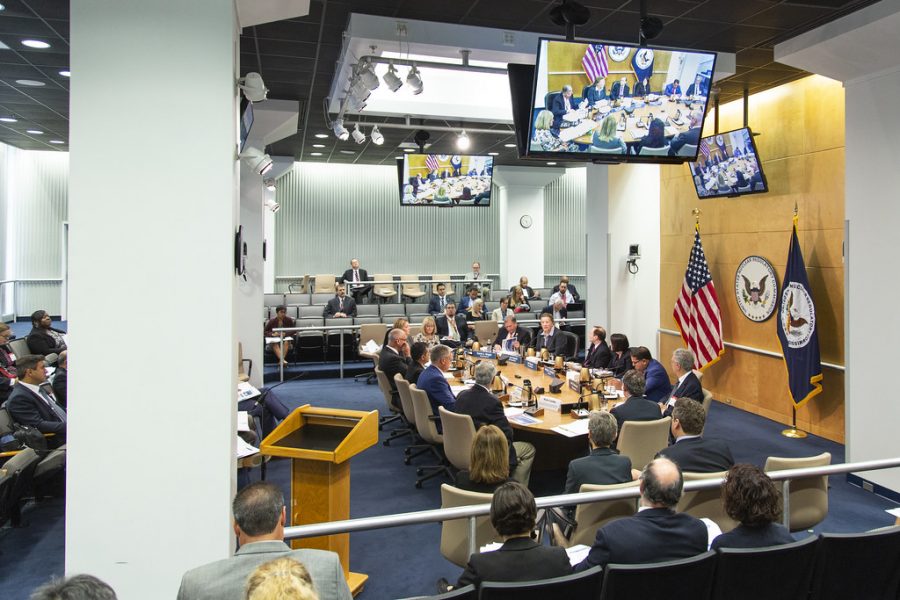Soon after taking office, President Biden nominated Richard Glick, a Democratic commissioner on the Federal Energy Regulatory Commission (FERC), as the Commission’s new chair.[i] Though the Commission is expected to maintain a Republican majority until Commissioner Neil Chatterjee’s term ends June 30, Glick has begun shifting the priorities of FERC, which regulates the interstate transmission and sale of electricity, natural gas, and oil, to align with President Biden’s ambitious energy and environmental goals.[ii] The following examines Glick’s three main priorities under the new administration, each of which could substantially change the energy regulatory landscape.
Tag: Federal Energy Regulatory Commission

The Federal Energy Regulatory Commission (FERC) has released a policy statement declaring it has jurisdiction to “incorporate a state-determined carbon price in [wholesale] markets.”[1]
FERC released the policy statement following a virtual technical conference it held on September 30 on the subject of carbon pricing in wholesale electricity markets.[2] The conference covered a range of topics, including an overview of current carbon pricing mechanisms used by states and regional coalitions, as well as operational and design issues that may arise when incorporating a carbon price into a wholesale market structure.[3]
The conference also featured a panel on the legal implications of integrating carbon pricing into wholesale markets. There, as is so often the case with a novel legal issue, the threshold question was one of jurisdiction—specifically whether and under what authority FERC has jurisdiction to implement carbon pricing.[4] Answering that question in the affirmative, FERC has taken a significant step by signaling it will not reject carbon price proposals brought by states “out of hand.”[5]


